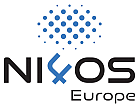Subject: knowledge graphs; Alzheimer’s disease; drug repurposing; disease classification; clinical decision support; neuroimaging; best practices; unified framework
Year: 2025
Type: Journal Article
Title: A Unified Framework for Alzheimer’s Disease Knowledge Graphs: Architectures, Principles, and Clinical Translation
Author: Dobreva, Jovana
Author: Simjanoska Misheva, Monika
Author: Mishev, Kostadin
Author: Trajanov, Dimitar
Author: Mishkovski, Igor
Abstract: This review paper synthesizes the application of knowledge graphs (KGs) in Alzheimer’s disease (AD) research, based on two basic questions, as follows: what types of input data are available to construct these knowledge graphs, and what purpose the knowledge graph is intended to fulfill. We synthesize results from existing works to illustrate how diverse knowledge graph structures behave in different data availability settings with distinct application targets in AD research. By comparative analysis, we define the best methodology practices by data type (literature, structured databases, neuroimaging, and clinical records) and application of interest (drug repurposing, disease classification, mechanism discovery, and clinical decision support). From this analysis, we recommend AD-KG 2.0, which is a new framework that coalesces best practices into a unifying architecture with well-defined decision pathways for implementation. Our key contributions are as follows: (1) a dynamic adaptation mechanism that adapts methodological elements automatically according to both data availability and application objectives, (2) a specialized semantic alignment layer that harmonizes terminologies across biological scales, and (3) a multi-constraint optimization approach for knowledge graph building. The framework accommodates a variety of applications, including drug repurposing, patient stratification for precision medicine, disease progression modeling, and clinical decision support. Our system, with a decision tree structured and pipeline layered architecture, offers research precise directions on how to use knowledge graphs in AD research by aligning methodological choice decisions with respective data availability and application goals. We provide precise component designs and adaptation processes that deliver optimal performance across varying research and clinical settings. We conclude by addressing implementation challenges and future directions for translating knowledge graph technologies from research tool to clinical use, with a specific focus on interpretability, workflow integration, and regulatory matters.
Publisher: MDPI
Relation: Brain Sciences
Identifier: oai:repository.ukim.mk:20.500.12188/34029
Identifier: http://hdl.handle.net/20.500.12188/34029


